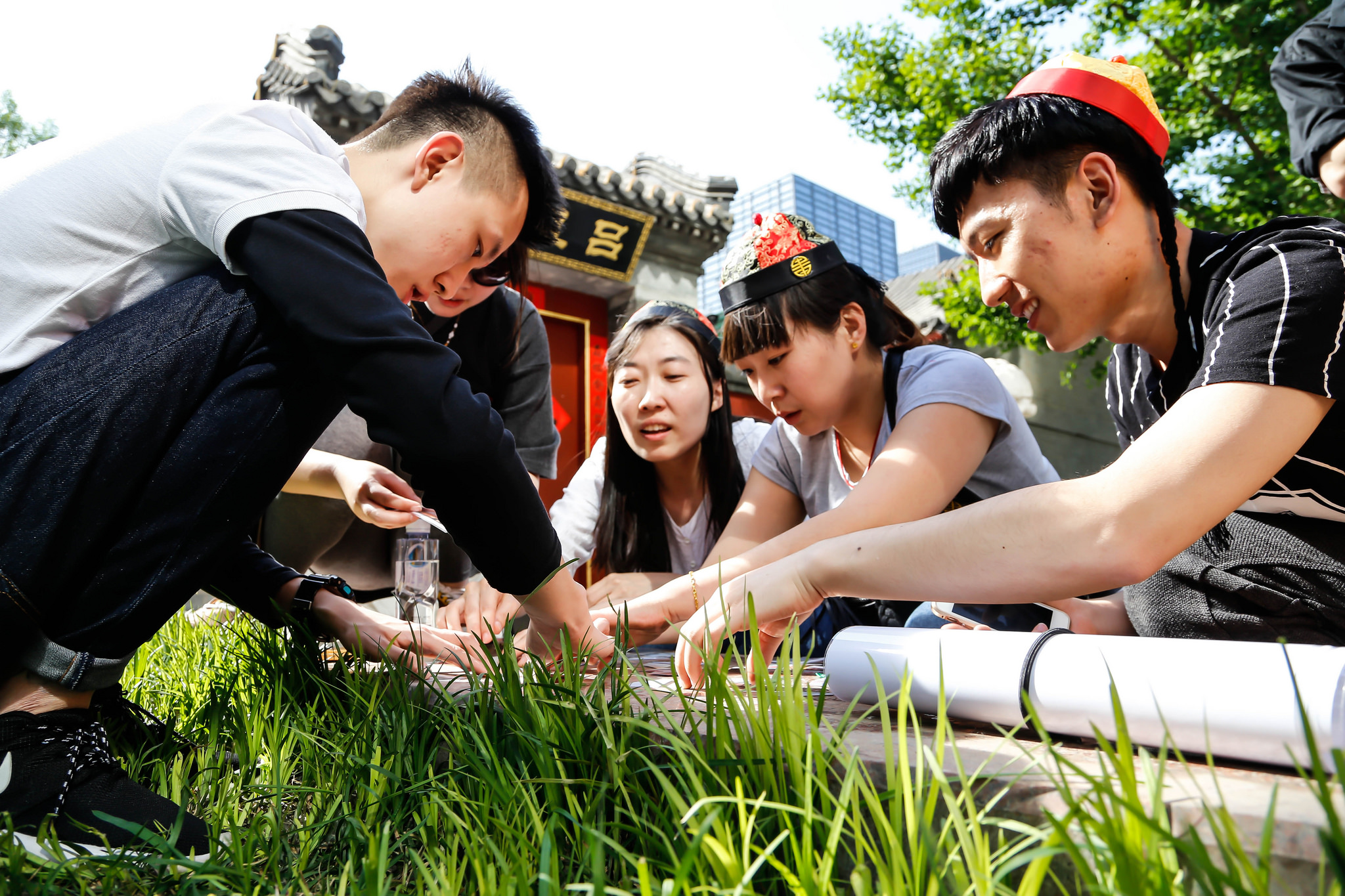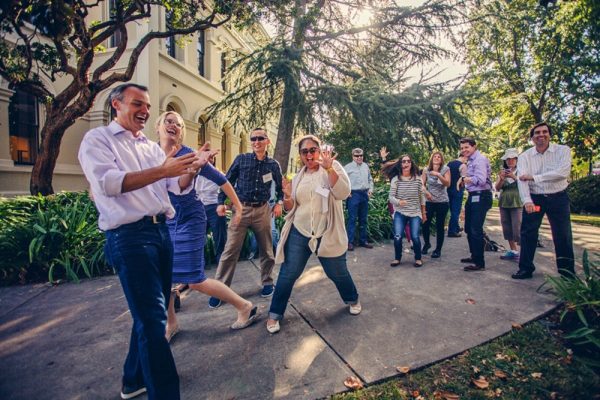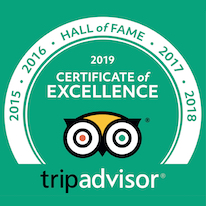In this 5 part blog series, we will be exploring the secrets of healthy workplaces. The content from this blog series comes from our partners at The Go Game. The Go Game has been played by thousands of companies in cities, parks, hotels and conference centers around the world. It’s a proven recipe for fun and team building. The Hutong is proud to be The Go Game’s exclusive partner in China. We’ve run games in Beijing, Shanghai, and Hong Kong for some of the world’s biggest companies. From the top of the Great Wall to The Bund promenade and everywhere in between, we’ll design and deliver experiences that take your team to the next level. Are you ready to play?
Are You Losing The Talent Game?
“21% of Millennial workers had left their job in the last year to do something else”, according to Harvard Business Review. This may be the most immediate dilemma facing modern businesses – how to create a great workplace culture that attracts the brightest talent and continues to support them feeling fulfilled and happy.
The other major issue raised by the same article is abysmal employee engagement. In the above referenced article, Amy Adkins and Brandon Rigoni share that “American workers aren’t particularly engaged at work as a whole. And Millennials lead the pack: 71% are either not engaged or actively disengaged at work, making them the least engaged generation in the U.S.”
How will you create a workplace that will attract the brightest talent? How will you bring your team together so that communication and collaboration are core elements of your workplace culture? How will you ensure that employees are actively engaged at work?
Competition between companies is high for top talent. This is especially true in the tech sector, where there is high demand for software engineers and there are short pipelines from ideation to production. Human capital has never been so important, since creativity is one of the greatest differentiating factors influencing success.
Today’s college graduates are no longer just interested in steady pay and benefits. The Society for Human Resource Management’s latest Employee Job Satisfaction and Engagement Report ranks “respectful treatment of all employees at all levels” as more important than compensation.
Employees are seeking inspiring workplaces, healthy cultures, teamwork, opportunities to learn and grow, and doing something meaningful. According to Deloitte, millennial employees (who account for the majority of the workforce) prioritize a sense of purpose around making a positive difference in people’s lives via their products or services.
Inspiration and professional growth are not enough to drive performance and productivity. For that, you need team alignment and collaboration. According to this 2014 survey by ClearCompany, 86% of employees and executives cite lack of collaboration or ineffective communication for workplace failures.
Telework and globally distributed teams add new dimensions of complexity to these teamwork and communication issues. Many distributed or remote teams experience a lack of the community and culture building that occurs more naturally with regular face to face interactions. And according to the US Bureau of Labor Statistics 2015 American Time Use Survey, telework is on the rise. 19% of the American Workforce worked from home in 2003, compared to 24% in 2015, and with numbers as high as 38% of people in management, business, and financial operations.
Research from top minds in the fields of organizational dynamics and psychology cited below, shows that employee turnover, disengagement, and miscommunication can be remediated through a surprising solution – PLAY! Gamified team-building experiences impact measurable outcomes like increased employee engagement, productivity, and revenue.
Play: The New Secret Weapon for Healthy Workplaces
Play is so important that Dr. Jane McGonigal believes it necessary for the very survival of the human species. McGonigal is a game designer and author author of The New York Times bestseller, Reality Is Broken: Why Games Make Us Better and How They Can Change the World.
Practically speaking, in a fiercely competitive business world, play can help individual employees hone basic work survival skills and also brings teams together to tackle these issues more efficiently. According to McGonigal, the use of mobile and digital gaming technology can be used to channel positive attitudes and collaboration in a real world context:
“When we’re in game worlds, I believe that many of us become the best version of ourselves — the most likely to help at a moment’s notice, the most likely to stick with a problem as long as it takes, to get up after failure and try again. And in real life, when we face failure, when we confront obstacles, we often don’t feel that way. We feel overcome, we feel overwhelmed, we feel anxious, maybe depressed, frustrated or cynical.”
Through interactive games, play is used as a tool to help teams trust one another so that they are willing to communicate innovative ideas and vital information about their work. Play is used as a tool to expand possibilities, foster deep engagement, build communities, increase resilience and create ideal environments for discovery and growth.
Our next blog post will be on the Problems of the Contemporary Workplace. Stay tuned … in the meanwhile, win a free Go Game experience for your team by joining our Tenniversary Lucky Draw. The Go Game has been played by thousands of companies in cities, parks, hotels and conference centers around the world. It’s a proven recipe for fun and team building. The Hutong is proud to be The Go Game’s exclusive partner in China. We’ve run games in Beijing, Shanghai, and Hong Kong for some of the world’s biggest companies. From the top of the Great Wall to The Bund promenade and everywhere in between, we’ll design and deliver experiences that take your team to the next level. Are you ready to play?













